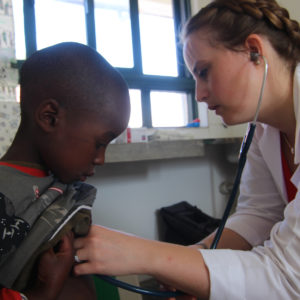Imagine that you are a physician in the United States seeing a man in your office who is concerned that he may be at risk for viral hepatitis. You order a blood test for viral hepatitis which does indeed show the presence of hepatitis B. Your mind immediately turns to the diagnostic and treatment modalities available to help minimize the risk that the infection will seriously affect your patient’s health. You think of vaccines for another type of viral hepatitis to help prevent additional injury to the liver, hepatitis B vaccines for any others in his family at risk for viral hepatitis, blood testing to see if the hepatitis is persisting and/or causing injury to his liver, blood and imaging tests such as ultrasound to be certain that the hepatitis has not lead to liver cancer, and a long list of medications, treatments, and surgical procedures which can help if there is persistent infection, any occurrence of liver failure or liver cancer because of the hepatitis. There are liver specialists, cancer specialists, and surgeons who can be consulted for complex questions about the best way forward at any point.
Now imagine that you are working at a mission hospital in a low-income country. You see a pregnant woman in your office who has also been diagnosed with hepatitis B as part of her prenatal care. This time, the list of tests and treatments which could help this woman and her child are overshadowed by a long list of questions. Are needed medications and vaccines to protect her child from getting hepatitis B available if needed? Do she and her family have the resources to afford testing and treatment? Without insurance and without disposable income, what will the family need to do without if they spend money on this testing and possible treatment (money for the children’s education, seed for the next planting season, medications needed by other family members, etc.)? How great is the chance of infection to her child, and how great is the risk of liver failure and/or liver cancer to her? Given these probabilities, how do you present the options for testing and treatment to her in a way which will allow her to make intelligent, informed decisions? If complications do arise, is there medical care available in the country which would allow for treatment? Do you recommend expensive testing for hepatitis complications for which there may be no effective treatment available?

Today is World Hepatitis Day with it’s theme this year of “Test. Treat. Hepatitis”. Viral hepatitis is a global problem which caused 1.34 million deaths worldwide in 2015. The World Health Organization is focusing efforts for viral hepatitis on improved prevention, testing, and treatment of these illnesses. The task for physicians in this effort is often to select from the wide array of preventative, diagnostic and therapeutic tools to help patients with viral hepatitis. In mission medicine, however, the hardest part of caring for people with viral hepatitis is often just the questions.
